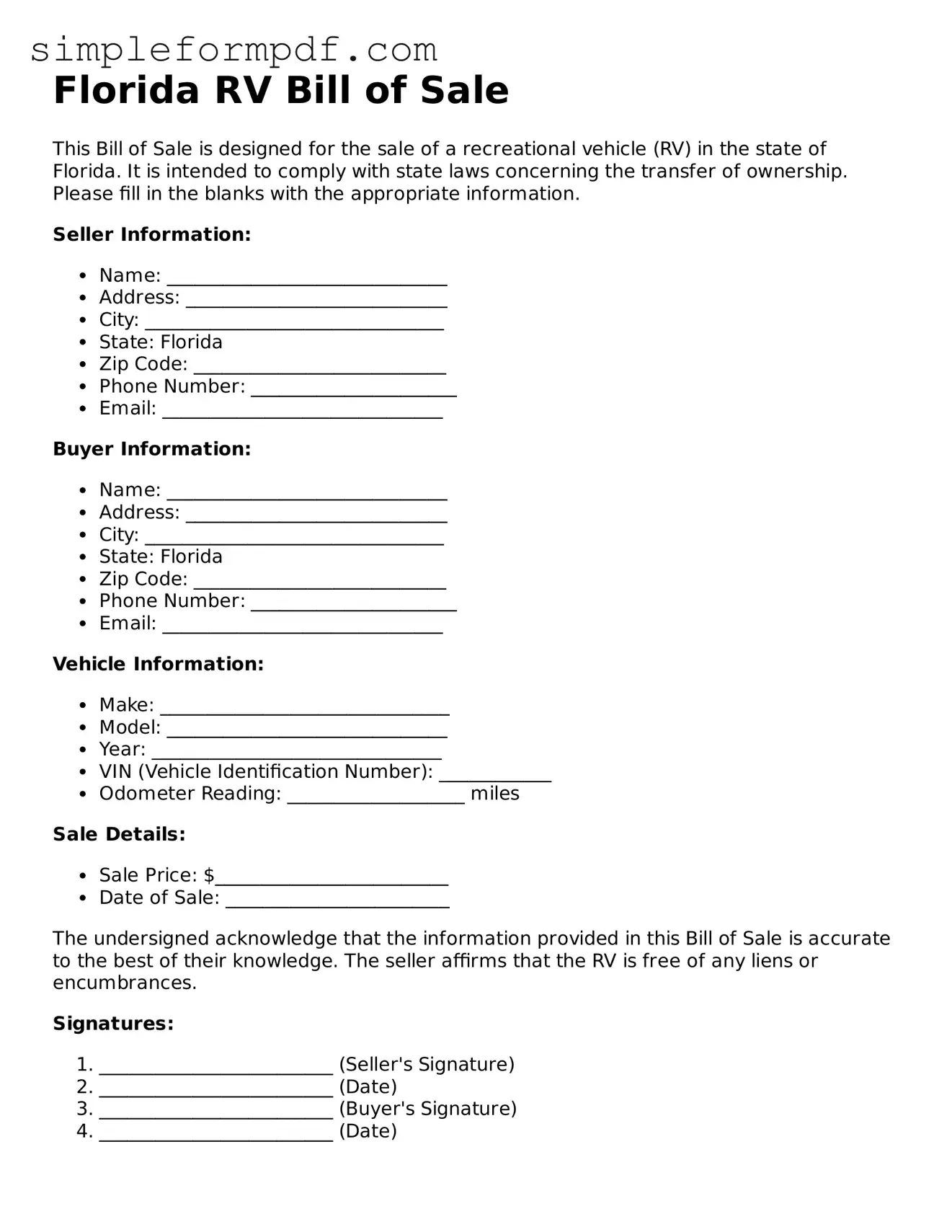Free RV Bill of Sale Form for the State of Florida
The Florida RV Bill of Sale form is a crucial document that records the sale of a recreational vehicle in the state of Florida. This form serves as proof of ownership transfer between the seller and the buyer, ensuring that both parties are protected during the transaction. To facilitate a smooth sale, it is essential to fill out this form accurately and completely.
Ready to get started? Fill out the form by clicking the button below.
Launch Editor

Free RV Bill of Sale Form for the State of Florida
Launch Editor
Need instant form completion?
Finish RV Bill of Sale online in just a few minutes.
Launch Editor
or
Download PDF
